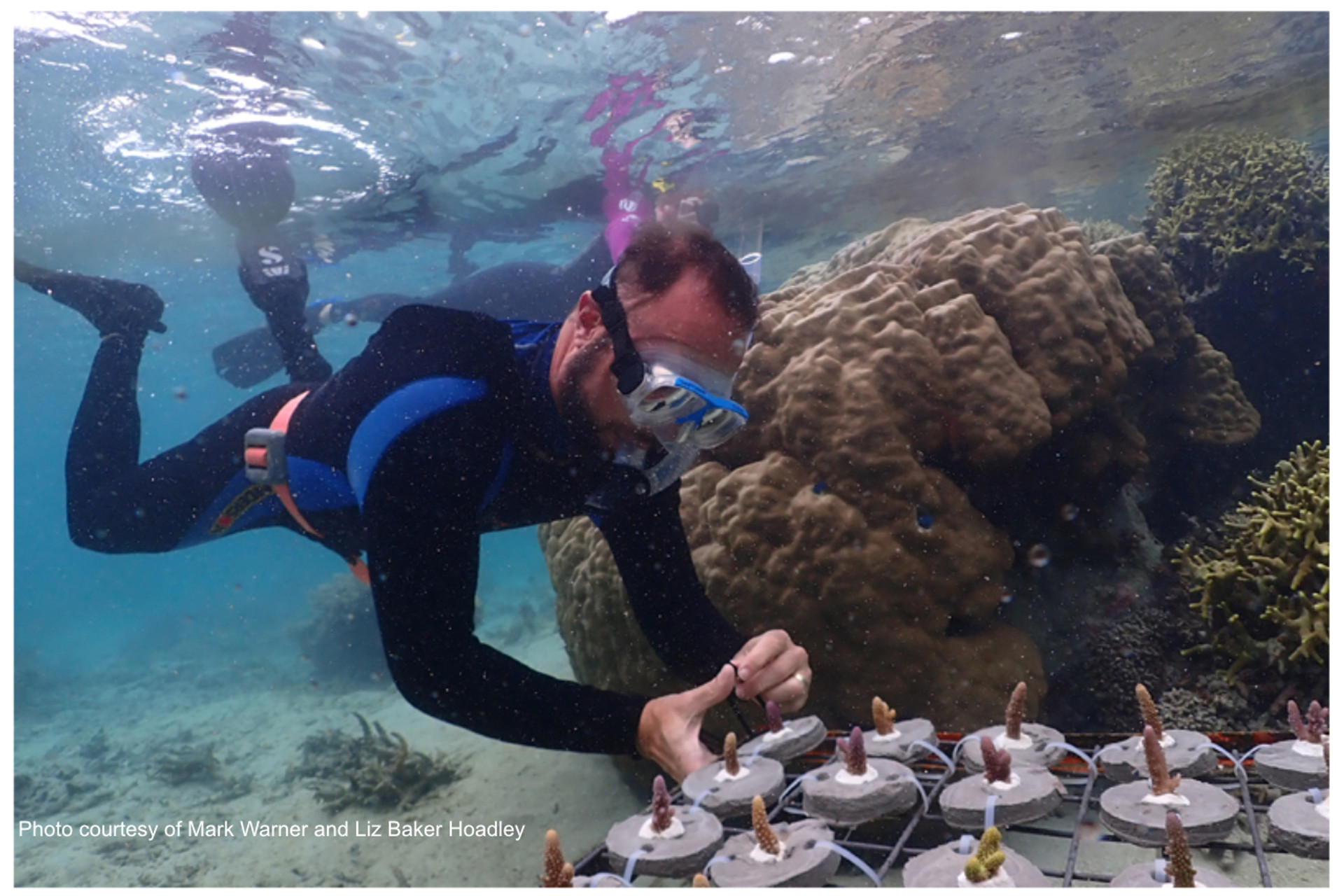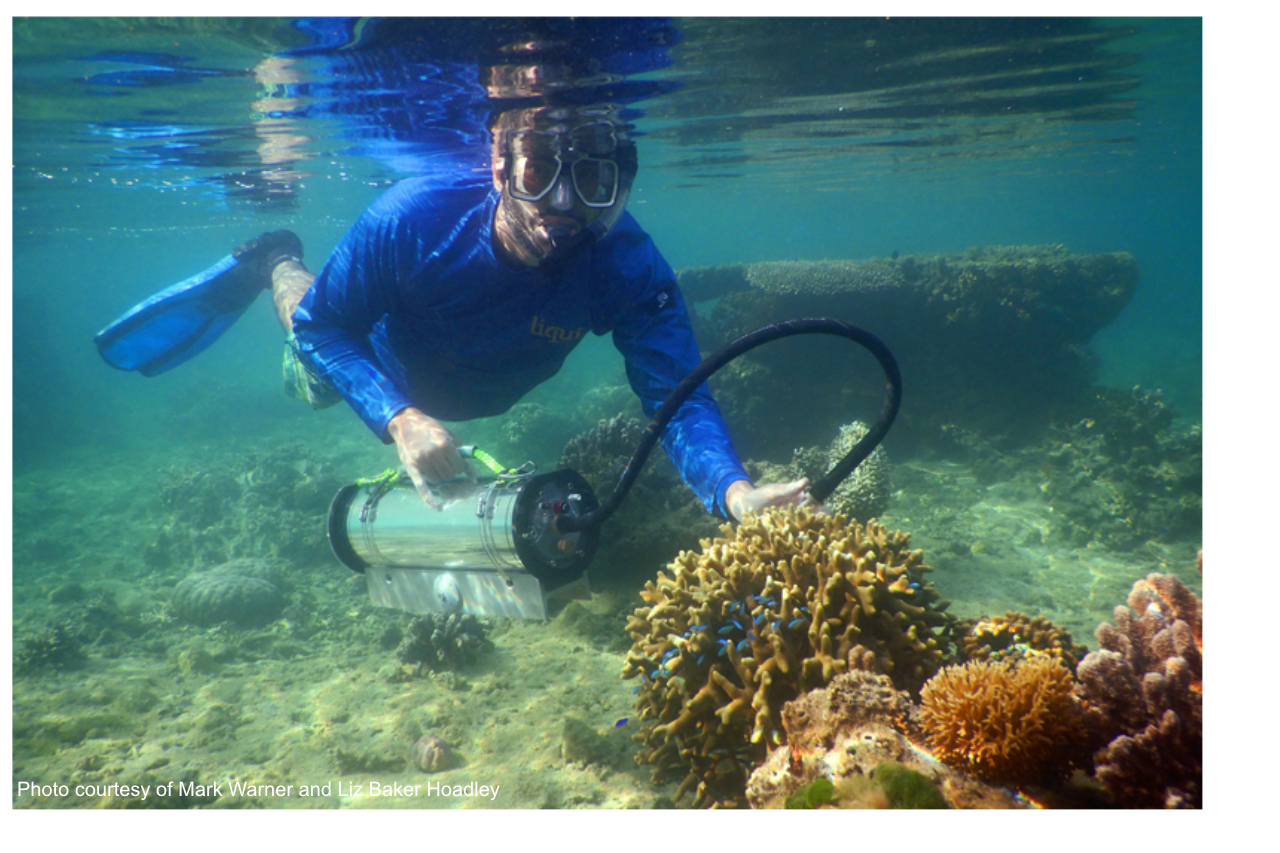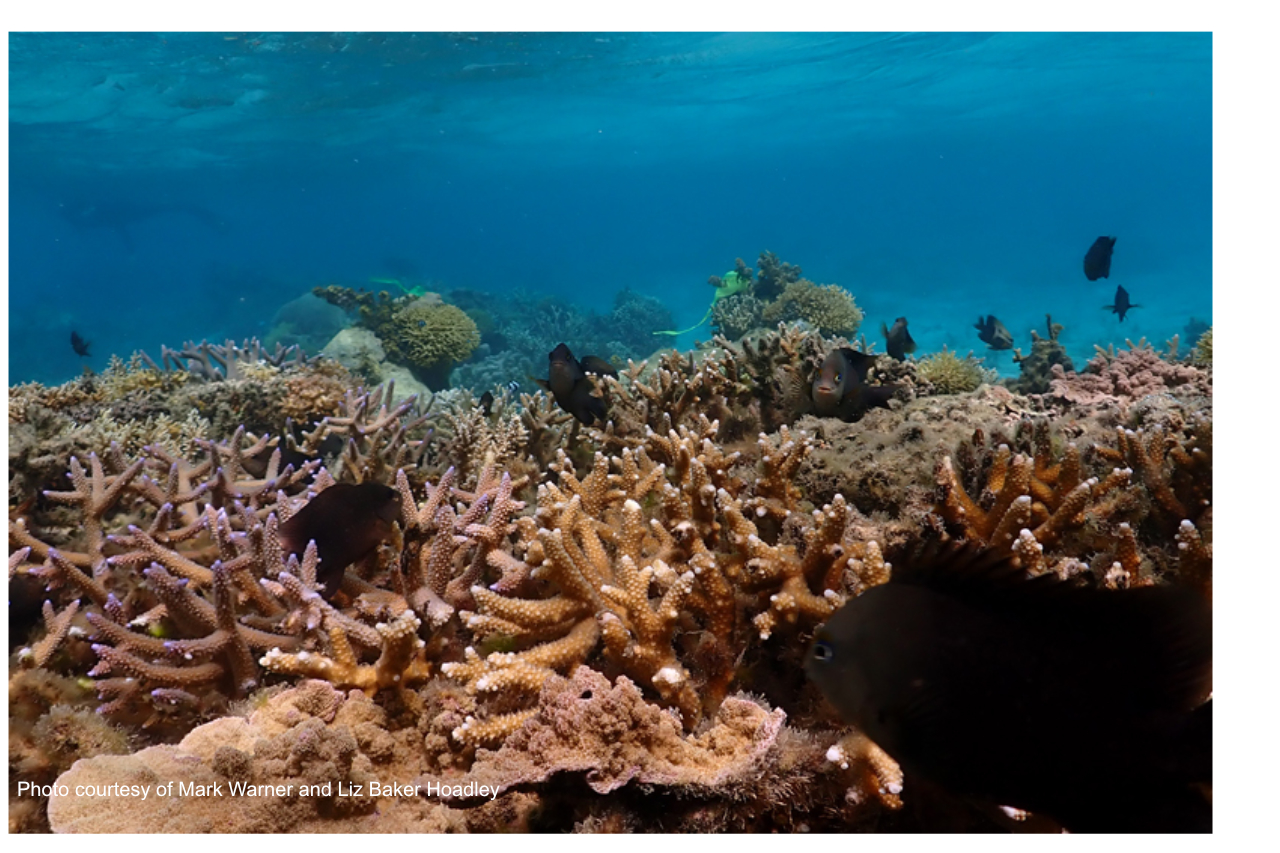FINDING HEAT-TOLERANT CORALS

The health of our coral reefs and oceans holds the upmost importance to all of us here at Quality Marine. We value all the research being performed and try to help whenever we can. The research, led by Mark Warner, a professor in the School of Marine Science and Policy at the University of Delaware, aims to determine how different coral species respond to water temperature fluctuations caused by global warming. Two projects, funded by the National Oceanic and Atmospheric Administration (NOAA) and the Coral Research and Development Accelerator Platform

(CORDAP), will sample coral species in Fiji, Guam, and Florida. The objective is to identify coral species with high thermal tolerance for use in coral reef restoration projects, thereby enhancing the resilience of reef systems. The first project, focusing on the Florida Keys, is funded by a $615,000 grant from NOAA's Ruth Gates Innovation Grant. The second project, funded by a $1.5 million award from CORDAP, involves research in Fiji and Guam and is part of a large-scale initiative with funds from the G20 and managed through King Abdullah University of Science and Technology in Saudi Arabia. Both projects will commence in 2024 and are funded for three years.
The projects focus on damaged coral reefs in Fiji, Guam, and Florida, areas heavily affected by climate change. In Florida, the reefs have faced significant damage due to elevated seawater temperatures and diseases, with less than 10% of the coral cover being reef-building corals. The research will span resource-heavy areas like the Florida Keys and Guam, as well as resource-light areas like Fiji. The aim is to develop low-cost restoration tools that individuals can use to identify the heat tolerance of certain coral species. In the CORDAP project, the research team is closely integrating with Fijian conservation efforts, involving local communities and obtaining permission from village chiefs to work on specific reefs. This integrative approach aims to establish research within the community before conducting fieldwork.
The researchers will conduct thermal bleaching experiments to assess the heat tolerance of coral species. For the Florida experiments, common Caribbean species from Mote Marine Laboratory nurseries will be used, while in Guam and Fiji, corals around established nurseries will be sampled. They will employ a submersible algal phenotyping

(SAP) fluorometer, developed by Hoadley and Lockridge, to screen the physiology of symbiotic algae within corals for their response to heating. This tool allows for on-site measurements, reducing the need to bring corals to labs for extended heating experiments. The SAP fluorometer induces photosynthesis in algae with bursts of multi-colored light, producing a fluorescent signature for assessing heat stress tolerance. The researchers aim to develop predictive models using machine learning algorithms based on pre- and post-heating data. The goal is to identify coral species suitable for transplantation and restoration without the need for extended heating experiments, providing a rapid and non-destructive method for coral health and thermal tolerance assessment. This could significantly impact coral restoration efforts.
It's noteworthy that Kenneth Hoadley, the lead researcher on these projects, designed the SAP fluorometer tool during his time as a doctoral student in Mark Warner's lab at the University of Delaware. Hoadley's work, which laid the groundwork for these studies, showcases the collaborative and evolving nature of scientific research. Warner expressed satisfaction in working with a former Ph.D. student who has become successful and is taking a leadership role in advancing coral reef research. This collaboration exemplifies the mentorship and continuity in scientific exploration. To learn more head over to Adam Thomas’ article https://www.udel.edu/udaily/2023/december/coral-reefs-reef-bleaching-ocean-global-warming-heat-tolerance-tolerant-corals/